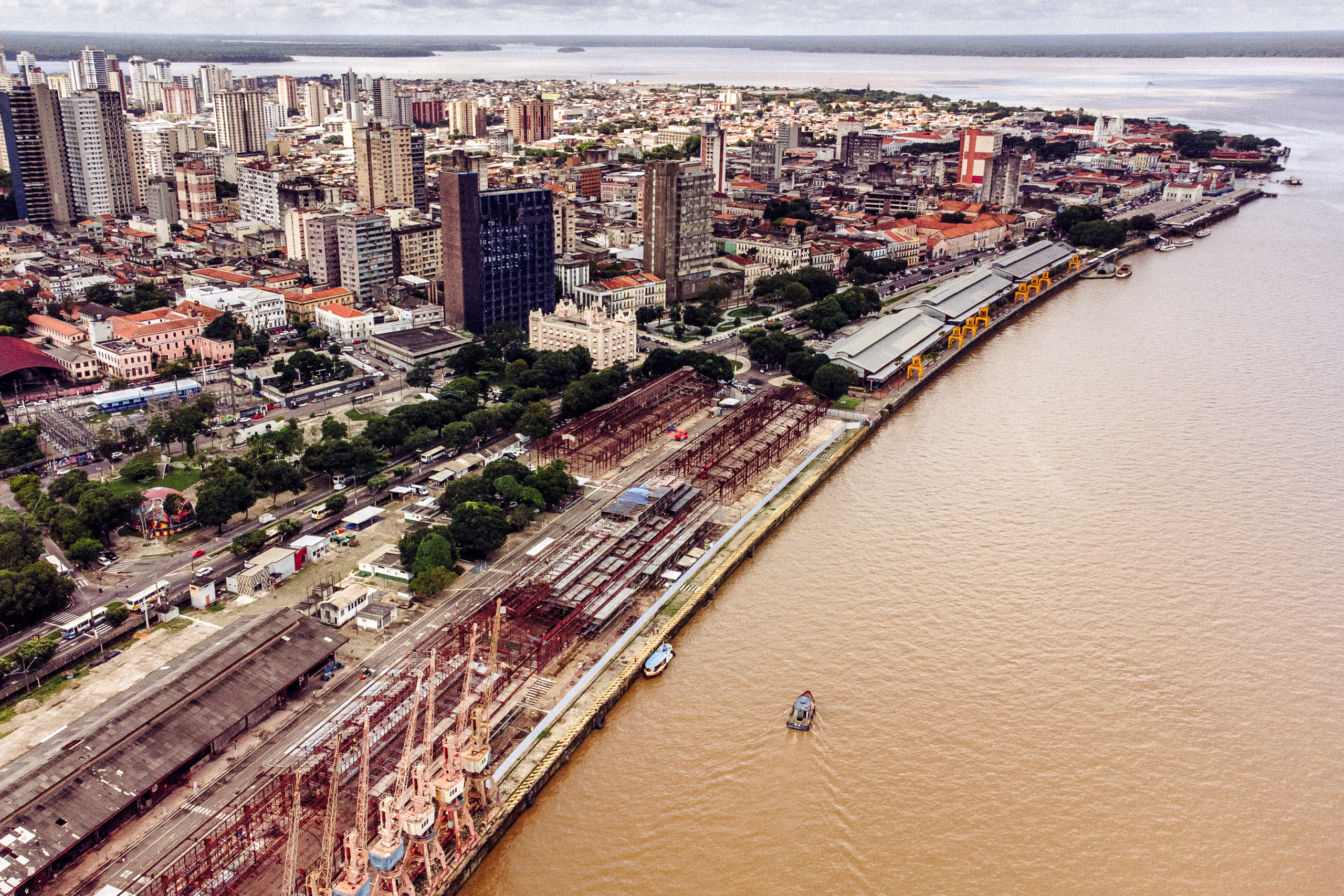The 30th United Nations Climate Change Conference (COP30) will be hosted in Belém, Brazil, marking ten years since the landmark Paris Agreement of 2015. This milestone summit is shaping up to be one of the most important in recent memory — a moment for nations to prove whether the promises made a decade ago can finally turn into tangible action.
As the global spotlight turns to the Amazon Basin — the planet’s largest rainforest and one of its greatest carbon sinks — India is preparing to enter the conference with a message rooted in fairness, equity, and access to finance and technology.
Instead of accepting fresh emission-cutting obligations, India intends to highlight the need for realistic implementation strategies that acknowledge the developmental needs of the Global South. With climate change now visibly disrupting economies, agriculture, and communities worldwide, COP30 is expected to focus less on new pledges and more on accountability and delivery, a direction that aligns perfectly with India’s diplomatic approach.
Brazil’s Climate Journey: From Deforestation to a Vision for Forest Finance
As the host nation, Brazil finds itself at the center of global attention. Historically, it has been both a climate hero and a climate challenge — home to the Amazon rainforest but also one of the world’s largest emitters. However, 2024 marked a turning point. Brazil recorded a 17% decline in greenhouse gas emissions, the most significant reduction in 16 years, thanks to stricter enforcement against illegal deforestation across the Amazon and Cerrado regions.
Building on this progress, President Luiz Inácio Lula da Silva is set to introduce an ambitious initiative at COP30 — the “Tropical Forest Forever Fund.” This plan proposes the creation of a permanent, multilateral financial mechanism that rewards tropical countries for conserving their forests and biodiversity.
Lula envisions COP30 as the “COP of Implementation,” meaning a conference focused less on negotiations and more on delivering measurable, real-world outcomes. Through long-term funding models and sustainable partnerships, Brazil hopes to transform conservation from a moral obligation into an economically viable pathway for tropical nations.
The Tropical Forest Forever Fund – A Bold Vision for Green Finance
The proposed Tropical Forest Forever Fund seeks to mobilize long-term, non-debt-creating financial resources for tropical nations. The idea is to incentivize forest protection, prevent deforestation, and ensure that nations rich in biodiversity receive fair compensation for ecosystem services that benefit the planet.
This fund is expected to be multilateral and permanent, involving governments, development banks, and private investors. It echoes the global demand for sustainable finance mechanisms that go beyond temporary pledges and instead ensure a steady flow of resources.
For India and other developing countries, such a fund aligns with the call for climate justice — recognizing that nations protecting global commons like forests deserve equitable financial support.
India’s Negotiating Focus – Fairness Before Fresh Commitments
India’s approach to COP30 will revolve around a clear principle: “equity and common but differentiated responsibilities” (CBDR).
Rather than accepting new emission-cutting obligations, India’s delegation plans to focus on fairness, adaptation, and resource delivery.
Indian negotiators have emphasized that adaptation indicators must reflect each country’s developmental context, rather than applying one-size-fits-all metrics that penalize developing economies. India insists that any new global framework should consider finance availability, technological capacity, and national circumstances.
Simply put, India’s stance is:
“Climate goals must not come at the cost of development.”
Adaptation and the Global Goal on Adaptation (GGA)
A major issue at COP30 will be the Global Goal on Adaptation (GGA) — a framework to guide nations in building resilience against climate impacts.
India will argue for:
- Flexibility in defining adaptation goals based on local realities.
- Respect for national data sovereignty, ensuring that international monitoring does not override domestic systems.
- Linking adaptation finance directly to measurable capacity-building support.
By doing so, India seeks to ensure that adaptation efforts are practical, inclusive, and fair, especially for countries facing floods, droughts, and heatwaves linked to climate change.
Finance at the Core – The New Collective Quantified Goal (NCQG)
Perhaps the most critical agenda item for India at COP30 is the New Collective Quantified Goal (NCQG) on climate finance.
The NCQG is designed to replace the outdated $100 billion annual commitment, which wealthy nations have failed to meet consistently since 2009. India will advocate that the new goal must be:
- Transparent – with clear accounting and reporting of contributions.
- Predictable – ensuring reliable, multi-year commitments.
- Non-debt-creating – avoiding loans that increase financial burdens on developing countries.
India’s message is simple: the implementation of climate action depends on financial support, not shifting the cost to developing economies already struggling with poverty eradication and infrastructure gaps.
India’s Renewable Energy Revolution
While calling for fairness, India has also shown leadership in clean energy. From just 81 GW of renewable capacity in 2014, India has scaled up to 236 GW in 2025, covering solar, wind, hydro, and bioenergy.
This threefold increase reflects India’s commitment to sustainable growth, even without the same level of financial support received by developed countries. Programs like the National Solar Mission, Green Hydrogen Mission, and Mission LiFE (Lifestyle for Environment) demonstrate India’s proactive role in achieving climate goals through innovation and community participation.
The Ethics of Climate Responsibility – Brazil and India’s Shared Vision
Brazil’s proposal for a “Global Ethical Stocktake” — merging scientific assessments with moral and lifestyle perspectives — mirrors India’s Mission LiFE philosophy.
Both countries believe that climate change is not just a technological challenge but a behavioral and ethical one. The idea is to rethink consumption patterns, promote sustainable lifestyles, and encourage citizens to adopt eco-friendly practices.
India’s Prime Minister Narendra Modi has consistently emphasized that the world must transition from “mindless consumption” to “mindful utilization.”
At COP30, this shared ethical dimension may become a cornerstone of the dialogue between Brazil and India, presenting a model for climate-conscious living.
Challenges in Reaching Consensus
Despite optimism, reaching a fair and ambitious agreement at COP30 will not be easy. Key challenges include:
- Disagreement on finance targets: Developed countries remain hesitant to commit to higher, unconditional finance goals.
- North-South divide: Wealthy nations prefer focusing on global emission reductions, while developing nations emphasize adaptation and justice.
- Implementation fatigue: After multiple conferences, many developing countries question the real-world impact of climate pledges.
India’s strategy, therefore, is to bridge gaps through pragmatic diplomacy — focusing on fairness and deliverability rather than abstract targets.
Brazil’s Dual Image – Forest Defender or Fossil Producer?
While Brazil has earned praise for curbing deforestation, it faces criticism for expanding fossil fuel projects, including deepwater oil drilling in the Amazon delta.
This contradiction has sparked debate about whether Brazil can truly lead a “green” COP30. Environmental activists argue that real leadership requires aligning energy policy with conservation efforts, not expanding oil production.
India, too, faces similar balancing challenges — meeting energy demand while pursuing decarbonization. Hence, both nations represent the complex realities of developing economies striving for sustainable growth amid competing pressures.
The Global South’s Collective Voice
At COP30, India is expected to collaborate closely with the Like-Minded Developing Countries (LMDCs), G77+China, and BRICS partners to amplify the collective voice of the Global South.
The key objectives will include:
- Defending the principle of Common but Differentiated Responsibilities (CBDR).
- Demanding greater representation in global climate finance mechanisms.
- Ensuring that adaptation and loss-and-damage funding are prioritized alongside mitigation.
This coalition aims to remind the world that climate justice cannot exist without addressing historical inequities in emissions and economic power.
Technology Transfer and Capacity Building
Another pillar of India’s COP30 agenda is technology transfer — enabling developing nations to access affordable clean technologies without restrictive patents or licensing barriers.
India will argue that open access to renewable technologies, battery storage, carbon capture, and AI-driven climate modeling is essential to accelerate global progress.
Moreover, capacity-building initiatives must be funded and localized, ensuring that countries can independently manage climate adaptation programs without over-reliance on foreign aid.
Loss and Damage Fund – A Work in Progress
The Loss and Damage Fund, established at COP27, remains underfunded and unclear in operation. India is expected to call for its full operationalization at COP30, emphasizing:
- Transparent governance, free from donor control.
- Priority support for nations facing climate-induced disasters like floods, cyclones, and sea-level rise.
- Integration with the NCQG framework to ensure coordinated funding flows.
For vulnerable countries in Asia, Africa, and Latin America, this fund represents a crucial lifeline for rebuilding climate-resilient economies.
COP30 and the Decade of Accountability
As COP30 marks ten years since the Paris Agreement, it is not just a climate conference — it’s a global report card.
The decade has seen impressive renewable growth, but also rising emissions and uneven progress. For India, COP30 is an opportunity to redefine global climate governance — one where implementation replaces rhetoric and justice replaces inequality.
India’s representatives will likely underscore that “the next decade must be about action, not promises.”
India’s Key Takeaways and Diplomatic Strategy
At the heart of India’s COP30 approach are five key principles:
- Equity and fairness must guide all climate frameworks.
- Adaptation should receive equal priority as mitigation.
- Finance and technology access must be transparent and non-debt creating.
- Sovereignty and flexibility must be respected in data and goal-setting.
- Sustainable lifestyles are as crucial as industrial decarbonization.
Through these principles, India aims to emerge not just as a negotiator but as a voice of conscience for the Global South.











